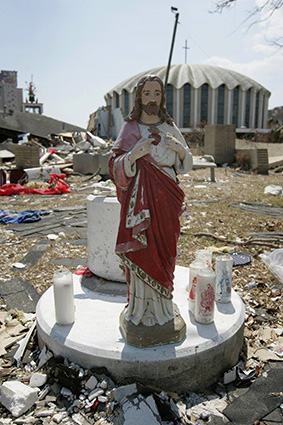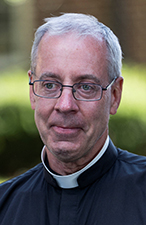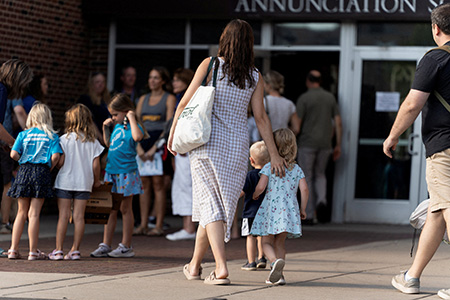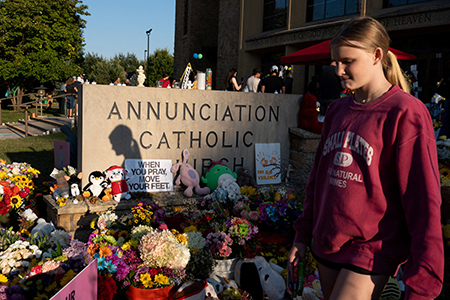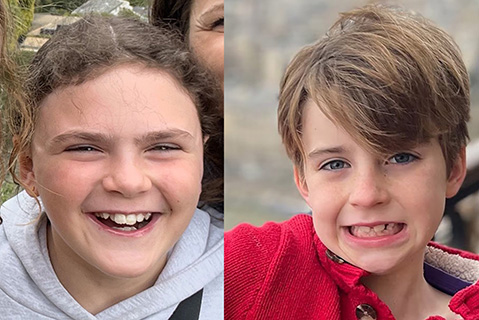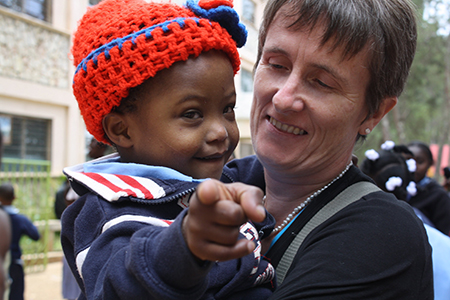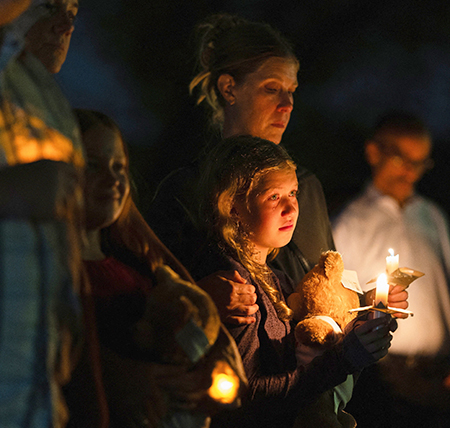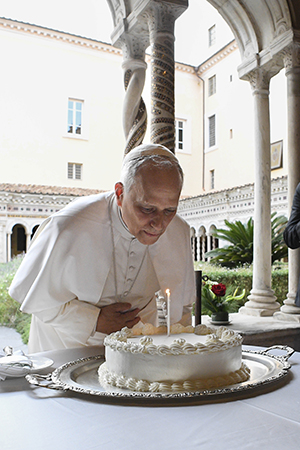
NATION
MIAMI (OSV News) – Dressed in the customary yellow colors of the event and with umbrellas in hand, elementary school student Aniela Alejandra Garcia and her mother, Yeily Garcia, didn’t let the weather stop them from approaching the statue of the Cuban Virgin of Our Lady of Charity. “I was helping people with the candles,” Aniela told the Florida Catholic, Miami’s archdiocesan news outlet. She made the remarks as she joined the local Cuban-American community Sept. 8 in placing bright yellow sunflowers and candles outdoors during a recitation of the rosary followed by Mass at the the National Shrine of Our Lady of Charity in Miami. The color yellow is customarily associated with the Virgin of Charity, and her shrines – including the one in Miami – are often graced with yellow flowers. Affectionately known as La Ermita de La Caridad, the shrine is located near Coconut Grove. This year was also the 25th anniversary of La Ermita’s designation as a national shrine by the U.S. Conference of Catholic Bishops in 2000. Flash flood warnings and epic rain may have shut down flights at the Miami Airport Sept. 8 but it didn’t stop faithful from making the pilgrimage to Biscayne Bay for the annual feast event.
VATICAN
VATICAN CITY (CNS) – Dozens of small handmade signs and large bold banners waved in the crowd of some 30,000 visitors in St. Peter’s Square wishing Pope Leo XIV a happy birthday Sept. 14. Two gold mylar balloons with the numbers “7” and “0” were held up high. The largest banner, in red and white, was held by a group from the Peruvian city of Monsefú in the province of Chiclayo, where the pope had served as bishop for eight years. “Dear friends, it seems that you know that today I turn 70 years old,” the pope said to huge cheers and shouts of “auguri,” meaning “congratulations” and “happy birthday” in Italian. “I give thanks to the Lord and to my parents; and I thank all those who have remembered me in their prayers,” he said after reciting the Angelus with the faithful in St. Peter’s Square. Musicians and musical bands in the square struck up the “Happy Birthday” tune, and people sang and clapped along. “Many thanks to everyone!” he said, followed by someone shouting, “Long live the pope!” “Thank you! Have a good Sunday!” he said.
VATICAN CITY (CNS) – Pain must never give rise to violence, and every Catholic needs to learn to safeguard with tenderness those who are vulnerable, Pope Leo XIV said during a prayer vigil dedicated to people experiencing pain and affliction due to illness, bereavement, violence or abuse. Recognizing that some members of the church “have unfortunately hurt you,” the pope said, the church “kneels with you today before our Mother (Mary). May we all learn from her to protect the most vulnerable with tenderness!” “May we learn to listen to your wounds and walk together,” he said in his homily Sept. 15, the feast of Our Lady of Sorrows. “May we receive from Our Lady of Sorrows the strength to recognize that life is not defined only by the evil we suffer, but by the love of God, who never abandons us and guides the whole church.” The pope led the prayer vigil in St. Peter’s Basilica Sept. 15 as part of the Jubilee of Consolation, which is “dedicated to all those who are experiencing or have experienced moments of particular difficulty, grief, suffering or hardship in their lives,” according to the section of the Dicastery for Evangelization in charge of organizing the Holy Year. Pope Leo said, “pain must not give rise to violence, and that violence never has the final say, for it is conquered by a love that knows how to forgive.” “Where there is evil, we must seek the comfort and consolation that can overcome it and give it no respite,” he said. “In the church, this means never being alone.”
WORLD
VITERBO, Italy (OSV News) – Italian police say they’ve prevented what could have been a deadly attack at one of the country’s most cherished Catholic traditions. On Sept. 3, counterterrorism officers raided a bed and breakfast near the route of the famous “Macchina di Santa Rosa” procession in Viterbo, arresting two Turkish men. Authorities say the men were found with automatic weapons, including an assault rifle, just steps away from where 40,000 people had gathered for the centuries-old festival honoring St. Rose of Viterbo. Italian Foreign Minister Antonio Tajani, who had been scheduled to attend, was quickly moved to safety. Prime Minister Giorgia Meloni praised the swift police action, saying it ensured the peaceful celebration of an event UNESCO recognizes as cultural heritage. While investigators say the suspects appear tied to organized crime rather than international terror networks, prosecutors are still weighing charges of arms trafficking and possible plans for a terrorist act.

